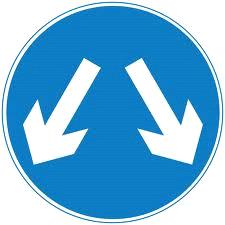Ammon News - AMMONNEWS - The D.C. Jewish Community Center runs a popular music festival featuring klezmer, a cappella, Broadway, liturgical and classical sounds. This year, they invited a Brooklyn feminist punk rock band called The Shondes — Yiddish for “disgrace” — to join the lineup , Washington Post reported.
Weeks later, the center uninvited The Shondes because the band’s leader had made public statements questioning whether Israel should exist as a Jewish state.
The JCC has staged an “Embracing Democracy” series over the past year, tackling tough issues with speakers on American Jews’ relationship with Israel and the birth of the Jewish state. David Harris-Gershon was asked to speak on his memoir about how he changed after a Palestinian terrorist’s bomb in Jerusalem seriously injured his wife.
But the JCC withdrew Harris-Gershon’s invitation after discovering that he had written a blog post sympathetic to the boycott and divestment movement against Israel.
And the JCC is home to one of the nation’s leading Jewish-themed theater companies, Theater J, which frequently takes on the wrenching drama of clashing Israeli and Palestinian narratives.
But one production in Theater J’s lineup this year — “The Admission,” a world premiere by an Israeli playwright about competing versions of a battle in Israel’s 1948 war for independence — was scaled down after a conservative group in Montgomery County denounced the JCC and called on the area’s 275,000 Jews to stop donating to Washington’s leading Jewish charity.
The JCC’s awkward about-faces reflect the explosive power of Middle East politics, the sensitive terrain on which Washington’s Jewish institutions operate, and increasing polarization within American Jewry.
A tradition of vigorous, nuanced debate is increasingly being boiled down to a binary choice of worldviews.
In a traditional approach to supporting Israel, all this disinviting looks like a Jewish institution making clear that it will foster debate but won’t cross a certain line, a bedrock belief that Americans should stand by a fragile Jewish state in the Mideast.
But to other American Jews, many of them young people who feel less of a bond with Israel, the JCC’s actions constitute a self-destructive timidity driven by the need to protect a relationship with important donors.
The Shondes will play at the Black Cat on June 2, sponsored by a leftist group, Jewish Voice for Peace, which endorses sanctions against Israel. A few weeks ago, Harris-Gershon spoke in the District, not at the JCC but at the Martin Luther King Jr. Library, sponsored by two liberal Jewish groups, J Street and Americans for Peace Now, both of which oppose aboycott.
And a restaging of “The Admission” just finished a three-week run at Studio Theatre, sponsored not by the JCC but by former D.C. mayoral candidate and restaurateur Andy Shallal, an Iraqi-American who spent many years running Arab-Israeli dialogues in partnership with Theater J’s director, Ari Roth.
The debate over who gets to speak rages among Jewish student groups on campuses nationwide. In a recent survey of U.S. rabbis, one-third said they were not comfortable expressing their views on Israel to their own congregations for fear of losing their jobs.
NEITHER SIDE BACKING DOWN
Most reviews of The Shondes say nothing of the group’s religion or politics, mentioning instead their anthemic writing, their exotic juxtaposition of violin and punk, or, as Rolling Stone put it, their “mix of riot-grrrl furor, arena bombast and klezmer stomp.”
But being Jewish is central to the band’s identity. The Shondes boast on their Tumblr about being blessed while on tour by the chief rabbi of Poland. Louisa Solomon, the lead singer, has a Hebrew letter tattooed on her wrist. Her politics feature in some lyrics, as in “I Watched the Temple Fall,” which makes clear her antagonism toward Israel’s policies:
“I’m sick/from the blood all over our hands/how the land soaks it in so the desert can/finally bloom with this colonial hate/no heart, no heart could really beat love for this state.”
In late March, Solomon was stunned by a call from DCJCC’s chief executive, Carole Zawatsky, canceling the invitation to perform in June because the DCJCC would not let artists use their events as a platform for supporting a boycott of Israel.
Solomon asked if the problem would go away if she agreed not to mention a boycott from the stage, but there was to be no negotiating. Solomon says Zawatsky focused on the “Temple Fall” lyrics “with what I heard as a clearly accusatory tone, as if the title itself were evidence of the band’s self-hating tendencies.”
For Zawatsky, the deal-breaker was Solomon’s avowed rejection of Zionism — the political movement for a Jewish state in the land of Israel. The original invitation to The Shondes “was a mistake,” she says. “A group that self-identifies as anti-Zionist doesn’t have a place on the stage of the DCJCC.”
Zawatsky says there’s nothing new about that rule; it’s a line almost all Jewish institutions enforce. “It’s very important for us to be relevant in theater, in music, in literature,” she says. “Those can be hard conversations. By looking at ourselves, we can be better people.” But, she adds, “the fundamental ground rule is that Israel should exist.”
Solomon rejects the idea that she is “suffering from internalized anti-Semitism simply because I am a proponent of BDS [shorthand for the boycott, divestment and sanctions movement]. I told her I was a proud Jew, a committed Jew and very comfortable having respectful debate.”
Solomon does not back down from her skepticism about a Jewish state. “Jewish institutions like the JCC regard it as treasonous that perhaps a nation-state was never a solution to Jewish persecution,” she says. “Treating someone like me . . .like I’ve committed treason, is bizarre. They’ve shot themselves in the foot here.”
